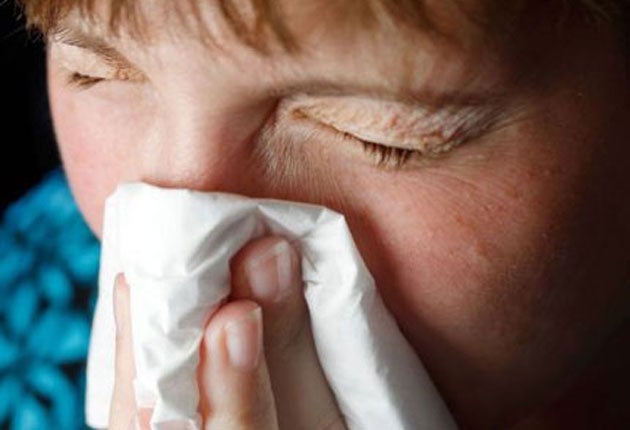Lemsip and Sudafed fail to help most head colds, NHS guidance says
Remedies marketed to relieve colds do little to help and sufferers would be better sticking to paracetamol, according to experts

Your support helps us to tell the story
From reproductive rights to climate change to Big Tech, The Independent is on the ground when the story is developing. Whether it's investigating the financials of Elon Musk's pro-Trump PAC or producing our latest documentary, 'The A Word', which shines a light on the American women fighting for reproductive rights, we know how important it is to parse out the facts from the messaging.
At such a critical moment in US history, we need reporters on the ground. Your donation allows us to keep sending journalists to speak to both sides of the story.
The Independent is trusted by Americans across the entire political spectrum. And unlike many other quality news outlets, we choose not to lock Americans out of our reporting and analysis with paywalls. We believe quality journalism should be available to everyone, paid for by those who can afford it.
Your support makes all the difference.Commonly used cold remedies such as Sudafed and Lemsip fail to alleviate the symptoms of most head colds, according to NHS guidance.
People suffering from sinus infections, which often give sufferers head pain, fevers, and blocked noses, would be better off sticking to paracetamol, latest guidance from the health watchdog suggests.
The advice from the National Institute for Health and Care Excellence says there is no evidence to suggest that oral decongestants ease the symptoms of sinus infections, despite being designed to relieve congestion by reducing inflammation and mucus production.
The new guidelines say: “No evidence was found for using oral decongestants, antihistamines, mucolytics, steam inhalation, or warm face packs.”
John Smith, the chief executive of the Proprietary Association of Great Britain, the trade association which represents manufacturers of over-the-counter branded medicines, told The Telegraph: “Painkillers are an effective way to manage some of the symptoms of a sinus infection, such as a headache or pain around the eyes and forehead, but decongestants can also play an important role. There is a wide range of decongestants available – both in oral and nasal form, which provides choice for the individual based on their personal preference.
“It’s important to remember that decongestants will not ‘cure’ people of a sinus infection, but if used in accordance with the on-pack information and patient information leaflet, they can help to relieve symptoms, such as a runny or blocked nose.”
The guidance says those with signs of a more serious illness, for example, double vision or a severe headache, should be referred to hospital immediately.
The institute also advises doctors against prescribing antibiotics for the infections, saying that most patients are better off resting and taking paracetamol to manage aches and pains.
The guidance, which is designed to reduce antibiotic use, comes amid continued warnings about the risk of antibiotic resistance.
Earlier this week Public Health England launched their Keep Antibiotics Working campaign to raise awareness of responsible antibiotic use to tackle the growing resistance to the drugs.
The campaign seeks to discourage patients from asking their GPs for antibiotics during the winter.
On Friday farming organisations set new targets to reduce the number of antibiotics used in the UK’s pig, dairy and poultry farming industries.
The new advice from NICE also suggests that placing a towel over your head and inhaling steam from a bowl may not help ease symptoms of sinusitis.
Join our commenting forum
Join thought-provoking conversations, follow other Independent readers and see their replies
Comments